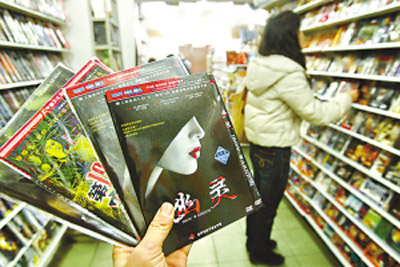Films such as the "Harry Potter" series will not be banned under China's latest edict on horror audio and visual products, an official with the film watchdog said in Beijing on Tuesday.
Hollywood blockbusters like "Shrek", "Toy story", "Gremlins" and "E.T.", all popular with children and adults alike, will also escape the ban as "their content is healthy", an officer at the General Administration of Press and Publications (GAPP) said.
The news comes in the wake of some newspaper reports that "E.T.", directed by Steven Spielberg, would come under the ban which came into force last week.
The official explained the ban would apply to horror audio and video products "specifically plotted for the sole purpose of terror and severely harmful to minors' physical and mental health".
The official said that audio and visual products of Chinese fairy tales and magic and science fiction which can enlighten minors and inspire their imagination and creativity were not covered by the ban. He cited as examples Harry Potter and "Journey to the West", one of the four greatest ancient Chinese works of literature, which features as hero a man-pig and has hundreds of evil spirits and devils ranging from the plain nasty to the really rather gruesome.
Some sales persons have questioned exactly what criteria earns a ban, because the circular issued by the GAPP last week lacks detailed and objective provisions.
The circular said a ban should apply to video and audio with elements of horror, violence and cruelty which could be extremely harmful for the psychological development of children.
Wang Mingmei, a middle aged Beijinger, said "kids could easily be misled by the violence and cruelty in horror films, which is very bad for their mental health."
She welcomed the ban saying her daughter, a middle school student, was too scared to go to sleep after watching some horror films.
Local media in Shenzhen Municipality of south China's Guangdong Province reported many video shops in the city had recently pulled a batch of copies of this category off the shelves. They didn't involve classics such as Harry Potter.
Some netizens proposed that the government should set up a rating system for this category of movie, as happens in foreign countries. They regarded this as more efficiency than a ban enforced with vague standards.
China began its crackdown on so-called "terrifying publications" in April 2006 after controversy over a Japanese comic story "Death Note", which, according to GAPP, depicted various scary ways of dying.
(Xinhua News Agency February 21, 2008)


